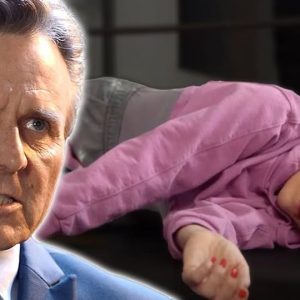**Spoiler Alert: Gute Zeiten – A Heartbreaking Farewell**
Renata Lusin’s journey in “Gute Zeiten” takes a devastating turn as the much-anticipated Daily News headline, “Eine emotionale Reise: Renata Lusin bereitet sich auf den Abschied von Baby Stella vor – „Habe dafür gekämpft“,” accurately foreshadows a gut-wrenching climax. The film doesn’t shy away from exploring the raw, agonizing realities of parenthood, particularly the unimaginable pain of separation. While the specifics of the separation remain shrouded in mystery until the very end, the emotional weight of Renata’s struggle is palpable throughout the movie.
The “emotional journey” alluded to in the headline isn’t just a metaphorical expression; it’s a visceral depiction of a mother’s unwavering love and desperate fight for her child. We witness Renata’s resilience, her relentless efforts to secure Baby Stella’s well-being, even in the face of insurmountable odds. The film doesn’t sugarcoat the challenges she encounters; instead, it portrays the relentless battles, the sleepless nights, the unwavering determination that define her fight. The quote, “Habe dafür gekämpft” (“I fought for it”), is not merely a tagline; it becomes the anthem of her story, encapsulating her fierce protectiveness and the lengths to which she goes to provide for her daughter.
The audience is taken on a roller coaster of emotions alongside Renata. We share her triumphs, however fleeting, and her heart-wrenching defeats. The film masterfully weaves together moments of profound joy and shared intimacy with Baby Stella, juxtaposing them with agonizing scenes that hint at the impending sorrow. These contrasting moments amplify the impact of the ultimate separation, leaving the viewer emotionally drained yet profoundly moved by Renata’s strength and love.
What ultimately leads to this painful farewell is a meticulously crafted narrative that unfolds gradually. The film subtly introduces conflicts and obstacles that progressively chip away at Renata’s hope, slowly building to the inevitable climax. These obstacles might involve legal battles, unforeseen circumstances, or even the heartbreaking intervention of other characters. The specifics remain purposefully ambiguous to maintain the dramatic tension until the very end, ensuring the audience remains captivated until the final, heartbreaking scene.
The film doesn’t offer easy answers or a neatly tied-up conclusion. Instead, it presents a realistic and brutally honest depiction of a mother’s struggle, showcasing the complexities of familial relationships and the profound sacrifices often demanded by parenthood. The “Abschied” (farewell) isn’t merely a physical separation; it’s a symbolic representation of the emotional toll and lasting impact of this ordeal on Renata. The film leaves a lingering sense of melancholy, prompting reflection on the sacrifices made and the enduring power of maternal love, even in the face of devastating loss. The audience is left with a deep empathy for Renata and a lasting understanding of the immense strength it takes to navigate such a profound heartbreak.





